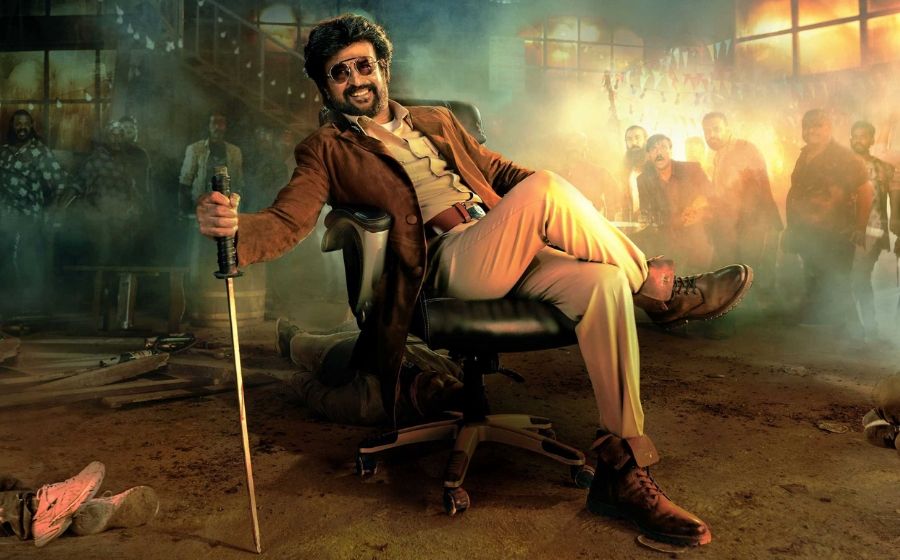
From Sivaji to Rajini, Tamil filmi 'cops' cling to violence and glorify brutality

From Sivaji Ganesan to his grandson Vikram Prabhu, Tamil actors over the past six decades, have fulfilled an unwritten obligation to play the quintessential cop at least once in their career – breaking bones, bringing wrongdoers to justice and saving damsels in distress – much to the rejoice of moviegoers.
However, when the reel turns real, police brutalities result in deaths of individuals or cause serious injuries to detainees. The recent death of a father-son duo in police custody in Tuticorin district of Tamil Nadu is a telling example of such excesses by police.
A similar episode in US’s Minneapolis, where a white police officer knelt on the neck of a black man for around 8 minutes before killing him, sent shockwaves across the world, followed by a mass uprising in various countries.
Such incidents have called for a revisit of films which have glorified police brutality and their implications on society.
Ruthless killing, endless firing
Time and again, cinemas in Tamil Nadu have witnessed the release of at least one film that glorifies police excesses—be it encounters or other ways of killing. There is usually the good cop, who takes action against offenders and produces them before a court; the bad cop, who himself is a vigilante who often takes law into his own hands and the ‘supercop’ whose moves and bone-crunching fights make a film commercially successful. Audience too celebrate these characters when they go on a killing spree.
Rajinikanth’s recently-released Darbar, for instance, shows the actor killing almost half the characters that appeared in the film.
In Suyira’s 2003 film Kaakha Kaakha, the actor playing ACP Anbuselvan team zeroes in on a gangster with his team and discusses whether to kill him or arrest him. After a minute-long discussion, as Anbuselvan reveals his wish to kill him, the gangster draws out his gun, prompting the police team to fire a barrage of bullets at him.
Related news: 11 21-century Bollywood films that set friendship goals
Similarly, Vikram-starrer Saamy (2003) has several scenes of police excesses. In one scene, a day before a pro-reservation rally held by a caste group, Vikram’s character Saamy tells his colleagues that certain cases that cannot be cracked can only be solved during these rallies. He goes on a shooting spree the next day, killing several men.
However, the constant glorification of such characters by a lot of Tamil filmmakers raises a moot point on whether these roles impact the public’s perception of police brutalities. Film historian S Theodore Baskaran says the impact of films like Kaakha Kaakha on the audience ends when they exit cinemas.
“Only a few films leave an impact on people. Besides a few ardent fans of actors, the public know how to distinguish between films and real life,” he says.
A few call out cop brutalities
Baskaran says many Tamil films have shown the police in a bad light too. “Take Vijay Sethupathi-starrer Super Deluxe for instance. The character of the police inspector in the film is shown assaulting a transwoman. In Vazhakku Enn 18/9, the police officer makes a false arrest and gets jail term for a poor and innocent boy,” he says.
Soodhu Kavvum, a dark comedy, also starring Sethupathi satirically shows a police officer’s extreme brutalities against offenders. A not well-known actor had played the police officer. However, the same brutalities by lead actors are not only being questioned, but are also celebrated, especially by fans.
But Baskaran says the questioning of police violence in movies will hardly make any change after a film gets certified.
Related news: On board the express called life: How trains played a role in Indian films
Though films have discussed wrongdoings of police, a very few have touched topics like custodial deaths or killings by police. One of the few movies is Visaranai, directed by Vetrimaaran that won Amnesty International Italia Award at the Venice International Film Festival in 2015.
It showed custodial torture by the Andhra Pradesh police and fake encounter by their Tamil Nadu counterparts. The movie was also selected as India’s official entry for the Best Foreign Language Film at the 89th Academy Awards in 2017.
However, Hollywood had witnessed several decades ago the release of many films against police brutalities towards the Blacks in the US.
More than 30 years before the Minneapolis killing, Spike Lee had written and directed Do the Right Thing that showed a police officer having a Black man in a chokehold, leading to his death.

